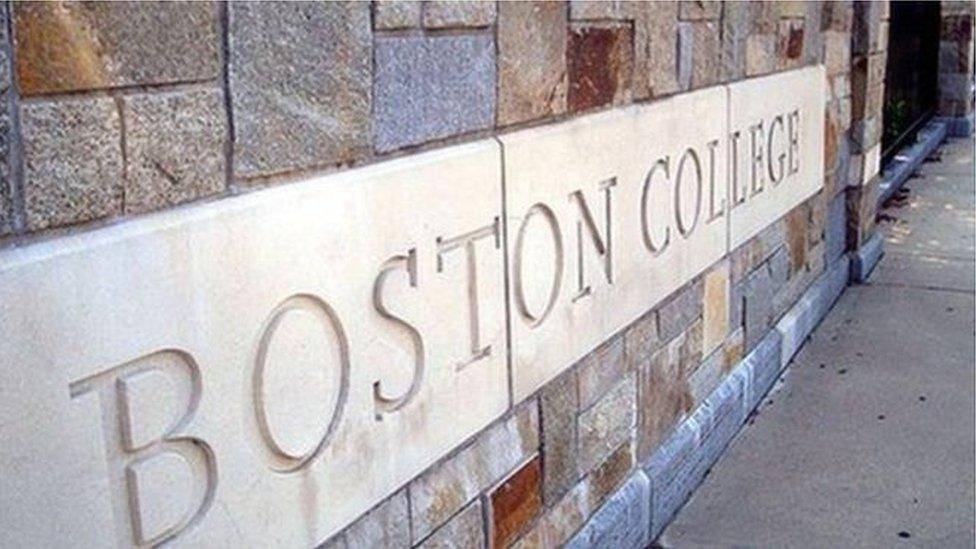Boston Tapes: Ex-IRA man loses fight over secret tapes
- Published
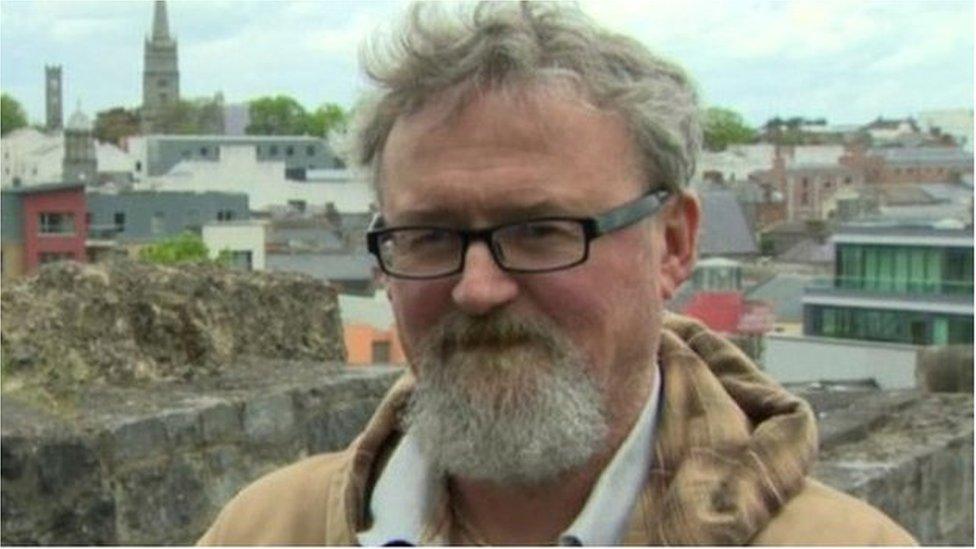
Former IRA man Anthony McIntyre was a lead researcher on the oral history project
A former IRA member has failed in his bid to stop police getting hold of secret interviews he gave to a US university.
Anthony McIntyre is among a number of ex-paramilitaries who gave confidential testimonies to Boston College about their role during the Troubles.
The convicted murderer was also a lead researcher on the oral history project, known as the Boston tapes.
The High Court has given him two weeks to apply to appeal the verdict.
It means the Police Service of Northern Ireland (PSNI) is not yet be able to examine recordings which have already been transported from the United States to Belfast.
Lord Chief Justice Sir Declan Morgan said: "We will direct that the material should be held in secure storage, under seal, at the Royal Courts of Justice."
Anthony McIntyre was one of the main researchers in the Boston College project to compile an oral history of the Troubles in Northern Ireland.
Originally from Belfast, he was jailed for murder in 1977.
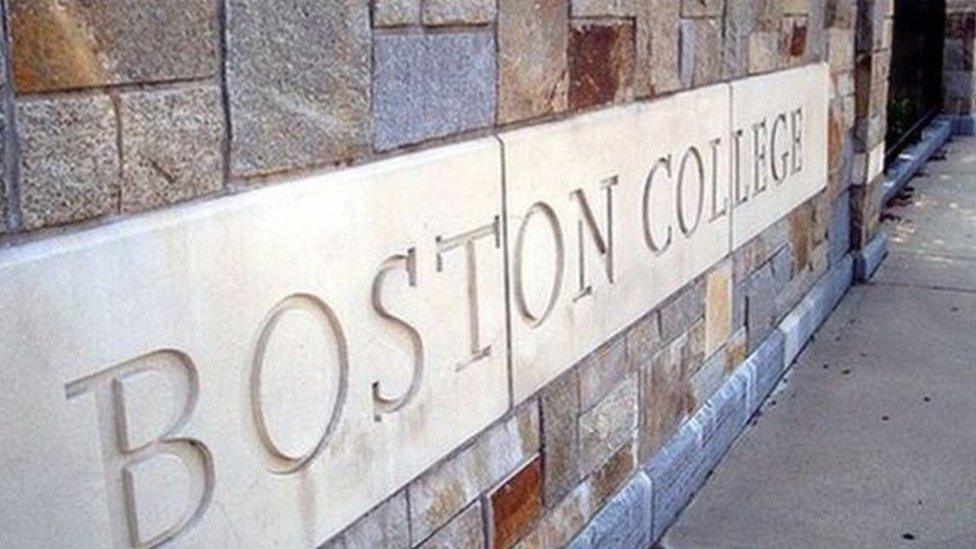
Boston College's Belfast project secured candid interviews with both loyalist and republican paramilitaries, who spoke about their personal involvement in Troubles-era violence.
The interviews were arranged under the condition that the material would not be made public until the death of the individual interviewee.
'Mistakes'
The recordings were held in a library at Boston College but in 2011, the PSNI began a legal bid to gain access to the tapes.
The officers have already secured transcripts and tapes of interviews given by former IRA woman Dolours Price and high-profile loyalist Winston "Winkie" Rea.
The British government then served Boston College with a subpoena seeking copies of Mr McIntyre interviews, but he tried to stop the process by seeking a judicial review.
Mr McIntyre lawyers claimed police and prosecutors should not be allowed to access the tapes due to mistakes in an International Letter of Request (ILOR) which set out a list of alleged offences which officers are investigating.
The ILOR list included a bomb explosion at Rugby Avenue in Belfast in 1976, but Mr McIntyre's legal team insisted that he was a victim in the bombing.
'Subterfuge'
They also argued the ILOR was littered with other inaccuracies, including an armed robbery for which their client was never convicted and IRA membership charge of which he was acquitted.
The Public Prosecution Service's legal team told the court that mistaken information in the original correspondence had been corrected and regularised.
A PPS lawyer also rejected any suggestion the Rugby Avenue explosion was being used as an act of "subterfuge" to gain access to Mr McIntyre's Boston College tapes.
A panel of judges at Belfast High Court ruled that any flaws in the ILOR process were not due to bad faith on the part of the authorities.
They dismissed Mr McIntyre's application but said he would have two weeks to confirm his intention to appeal the verdict.
- Published17 October 2019
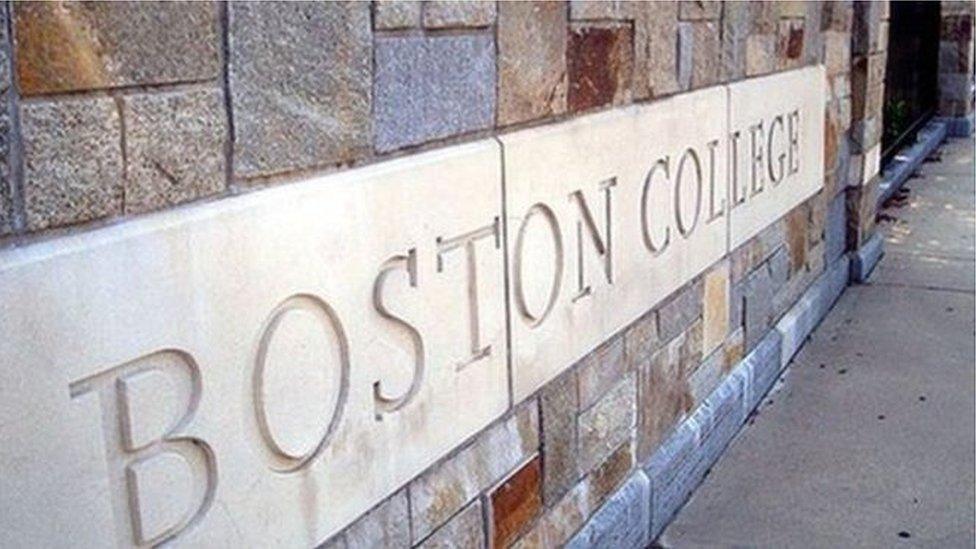
- Published19 September 2016
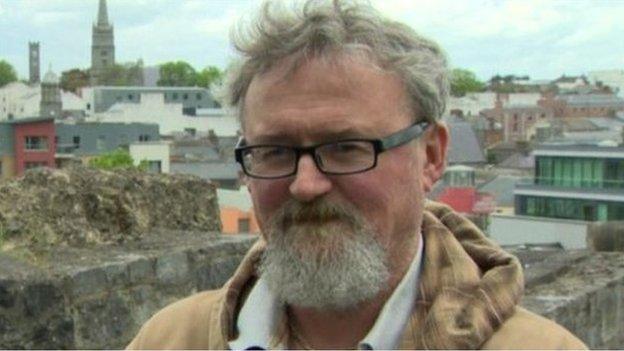
- Published7 June 2016
